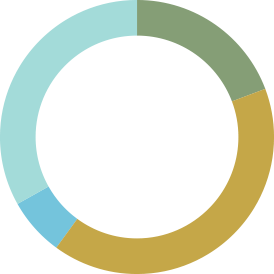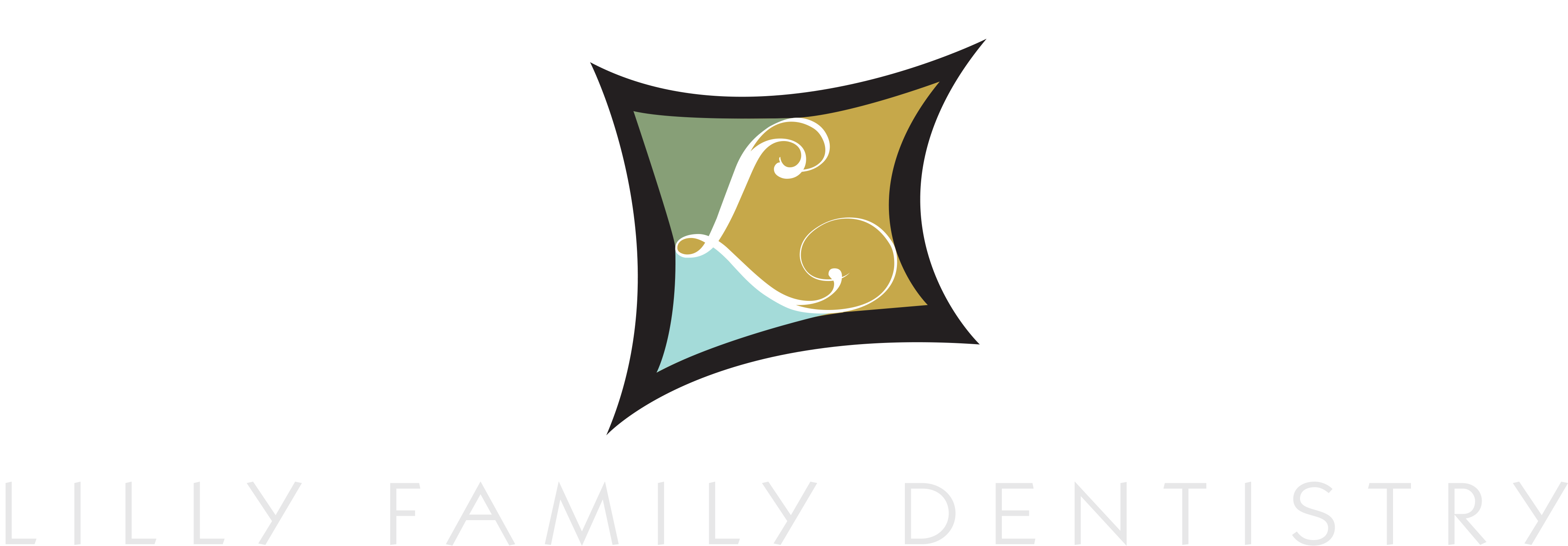GENERAL AND FAMILY DENTISTRY
LINKING DENTAL HEALTH AND WHOLE HEALTH

REGULAR PREVENTATIVE DENTISTRY
Professional and daily dental care can foster long-term oral health. As your trusted family dentists, our doctors want you to enjoy a strong, healthy, vibrant smile for life. The best course of action to achieve this goal is regular preventive dentistry. Attend checkups and cleanings twice a year for optimal results. The dentists will evaluate your teeth and gums to find existing or potential problems, like gum disease, oral cancer, tooth decay, or tooth fractures. By addressing these issues in the earliest stages, your treatment can be conservative – which means minimal time at the dentist’s office and minimal expense.
KEEP UP THE GOOD WORK
A direct link exists between dental health and whole health, meaning your oral health has a significant impact on your overall health and wellness. When you consider that your mouth is a kind of portal to your whole body, this link makes perfect sense!

Many people have deep pits and grooves in their teeth where bacteria and food particles can hide and cause decay. Children with poor brushing habits may also develop decay on hard-to-reach molars. For situations like these, dental sealants offer a means of protecting molar and premolar chewing surfaces from decay. Recognized by the American Dental Association as a key means of cavity prevention, dental sealants are simply a thin plastic film that can be applied to teeth.
First, we identify and fill any spots of decay, then prepare your teeth with a cleaning and etching solution. After about 15 seconds, we thoroughly rinse the solution, dry the surface, coat your teeth with the sealant, and harden it with a curing light. The entire procedure is fast, easy, and comfortable. It takes about 10 to 45 minutes, depending on the number of teeth to seal.
Dental sealants create an impenetrable physical barrier for small food particles and cavity-causing bacteria, making them highly effective in preventing tooth surface decay and the resulting cavities. Sealants can last up to ten years. Most insurance companies only cover sealant procedures at a minimal level, but the good news is that insurance companies seem to be recognizing this technique’s value as a preventive measure that will help reduce future dental costs and more aggressive treatments. Dental sealants are an easy and effective treatment that costs one quarter to one eighth the fee of a filling.
Some patients react to stress by grinding their teeth unconsciously during the day or, more commonly, while sleeping. The constant pressure and motion can harm teeth, as well as muscles and tissues in and around the jaw. The condition, known as bruxism, can be remedied with a nightguard.
The Facts About Clenching & Grinding
Common symptoms of bruxism include a sore jaw, headaches, or earaches. Causes vary, but may include stress, anxiety, tension, misaligned teeth, posture, diet, sleeping habits, and other factors. Bruxism is most prevalent in women and generally found in about one-third of the population.
Individuals who react to stress with anger, pain, frustration, aggression, or competition are most commonly affected. People with bruxism may have other biting habits, such as biting fingernails, pencils, lips, or the insides of their cheeks.
Constant clenching and grinding of the teeth can cause not only the aforementioned symptoms, but it may also contribute to TMJ (temporomandibular joint) dysfunction, which has a long list of side effects associated with pain in the head and neck. Teeth rubbing together consistently will result in surface wear over time, which will cause dental problems. Insomnia, eating disorders, and depression can result from bruxism if left untreated.
A Solid Solution
How can you stop an unconscious habit? A thorough evaluation will allow us to check your teeth, tissues, and muscles. If we determine that you suffer from bruxism, we’ll create an appliance, also called a nightguard or splint, to prevent grinding and clenching. Many types of nightguards exist, and patients react differently to the various styles. If one appliance does not work, another may. In many cases, simply wearing a nightguard will eliminate the problem.
Some practices that can relieve symptoms of bruxism include stress and anxiety management, focused facial relaxation, massage and stretching of face and neck muscles, applying ice or wet heat, proper rest, eating soft foods, and hydrating the body. If your teeth were damaged because of bruxism, or if we find TMJ to be a factor, our team will repair and treat you to provide complete relief.
The most common disease in the United States is not what you may think. Heart disease, stroke, or cancer come to mind, but actually gum disease is the single most prevalent disease in America. In fact, it affects more people than heart disease, stroke, Alzheimer’s, and cancer combined. About 80% of the population has some form of gum disease, also known as periodontal disease, periodontitis (advanced), and gingivitis (mild).
What is Gum Disease?
Gum disease is an infection of the gums and bone that support teeth, and it usually starts early in life, then progresses as a person ages. It all starts when plaque hardens into tartar (also called calculus) below the gum line. This irritates vulnerable soft tissues and infection can set in. Combined with decaying food particles lodged between teeth and bacteria emitted by plaque, the infection can spread quickly. Symptoms are so mild in the early phase, many patients don’t recognize them: red, tender, swollen gums, bleeding when brushing teeth.
As the condition progresses, gums recede from teeth and pockets of bacteria form. The bacteria can destroy gum tissue and bone, causing tooth and bone loss.
Why is Gum Disease so Serious?
Recent research reveals that gum disease is linked to increased risk for major overall health problems, including but not limited to stroke, heart disease, respiratory problems, osteoporosis, diabetes complications, low birth weight, and most recently, dementia. Because of these findings, research continues. We may learn much more in the next few years.
It makes perfect sense, though – gum disease linked to overall health problems. Everything that enters or is present in the mouth has access to the whole body. The mouth is like a portal to the body. That’s why regular checkups and hygiene visits are vital to not only oral health, but also overall health.
Is Gum Disease Curable?
Unfortunately, gum disease is not curable. However, we can detect early warning signs of gum disease at your regular dental checkups. At this stage, prevention might be as simple as changing your brushing technique, improving your flossing routine, or changing the products you use for oral care at home.
Once gum disease sets in, we can often treat it with non-surgical therapy including:
- Scaling – to remove hardened plaque from below the gum line
- Root Planing – to reduce rough areas on teeth roots
- Antibiotic Therapy – to battle infection
- Surgery – advanced cases may require the care of a periodontist, in which case we will refer you to a trusted colleague
Expect to attend more frequent hygiene visits so that a dentist or hygienist can monitor your condition and make sure that recovery is on track.
The word “apnea” in Greek literally means “without breath”. Sleep Apnea is when breathing involuntarily stops during sleep. People who have sleep apnea stop breathing repeatedly through the night, and in most cases they are unaware that this is happening. The most common type is called obstructive sleep apnea, often referred to as OSA. OSA happens because the soft tissue in the back of the throat collapses during sleep.
Some common symptoms of sleep apnea are:
- loud snoring
- grasping or choking during sleep
- persistent daytime sleepiness
- awakening out of breath during the night
- frequently waking up with dry mouth or a headache
- obesity
Left untreated, sleep apnea can have serious consequences including:
- headaches
- high blood pressure
- cardiovascular disease
- heart disease
- stroke
- memory problems
- weight gain
- impotence
- diabetes
- relationship problems with bed partner
Fortunately OSA can be diagnosed and treated. The best treatment for sleep apnea is Continuous Positive Airway Pressure commonly known as a CPAP Machine. The person using the CPAP wears a mask during sleep that is attached to the machine using a hose. A CPAP machine blows air into the throat so the airway cannot collapse.
While CPAP is the best treatment option for OSA, many patients have a hard time using the machine. There are many different reasons people cannot tolerate the machine. One year after CPAP treatment has started, over 75% of patients are no longer using the machine, and 50% of those don’t even last one month!
The good news is there are other options. Oral appliances have had great success treating patients who have mild or moderate sleep apnea, as well as severe patients who cannot tolerate the CPAP machine.
Oral appliances work by holding the mandible (lower jaw) forward during sleep. This opens the airway in the back of the throat by separating collapsed tissues. These appliances look like orthodontic retainers or sports mouthgaurds and are very comfortable to wear when made by a dentist who is trained in the field of sleep apnea.
Our entire staff has completed training in sleep apnea and will go above and beyond to help you sleep better.
Call our office today for a FREE consultation to talk about oral appliances for sleep apnea.
Dental problems don’t heal naturally, as would a cut or bruise. Instead, they grow and cause more significant damage. Professional restoration is the only option to restore dental health. By keeping your six-month dental visits, you’ll be less likely to develop serious dental problems.
If you’re a parent, you’ll want to take care of your child’s smile with professional dental care starting about age two. Schedule a “happy visit,” and our doctors will perform a quick mouth check for development or oral health concerns. We promise to give your child a positive impression about visiting the dentist. If you teach your kids to take care of their teeth, they should experience fewer dental health concerns as adults.
